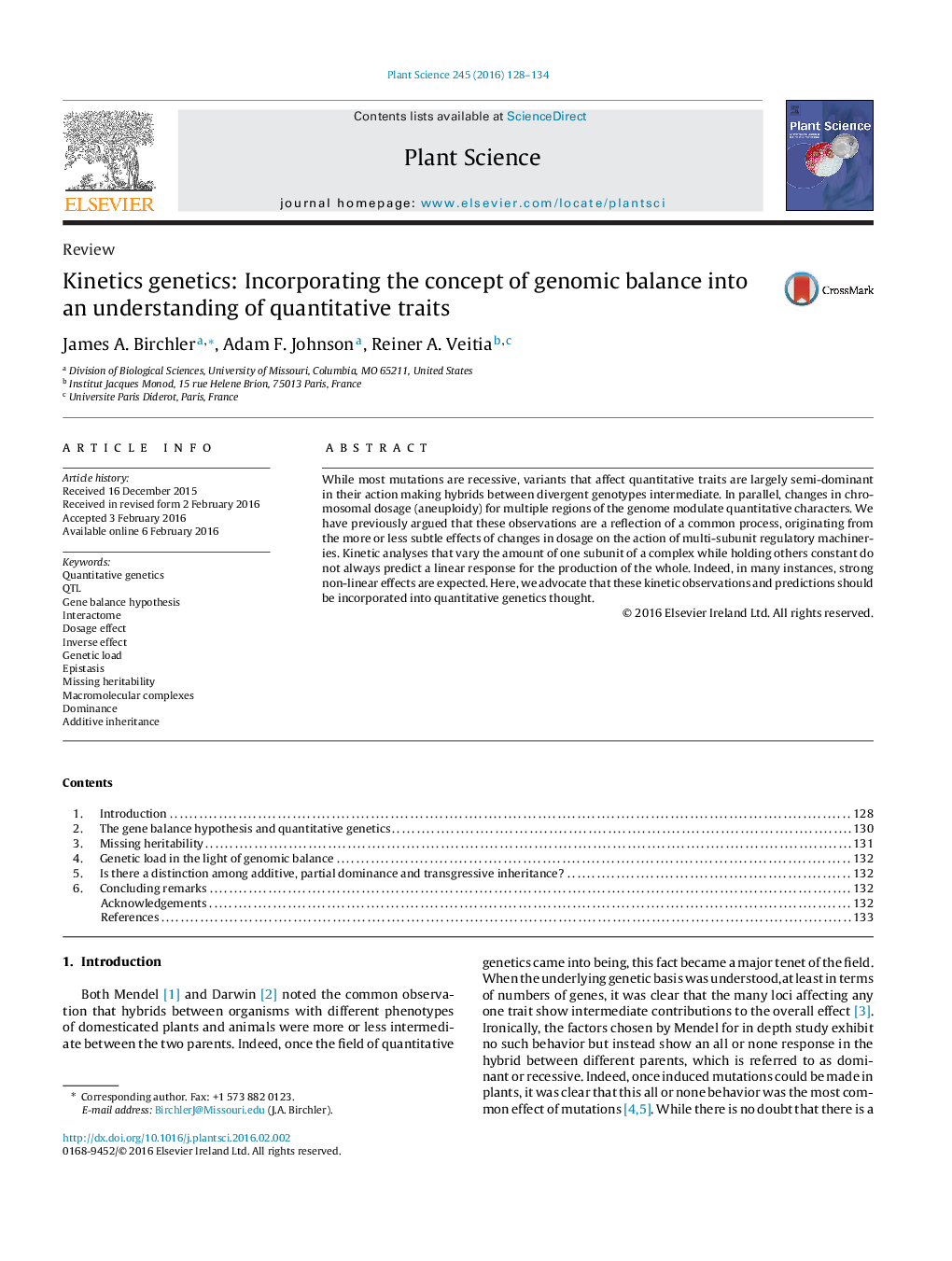| کد مقاله | کد نشریه | سال انتشار | مقاله انگلیسی | نسخه تمام متن |
|---|---|---|---|---|
| 2017186 | 1542044 | 2016 | 7 صفحه PDF | دانلود رایگان |
• Gene regulatory/developmental processes are controlled by multi-subunit complexes.
• Kinetics of complex assembly is affected by the stoichiometry of the components.
• Quantitative genetics should incorporate kinetics of regulation into the discipline.
• Missing heritability might reflect subtle multi-component stoichiometric imbalances.
• Categories of quantitative traits reflect dosage sensitivities that are nonlinear.
While most mutations are recessive, variants that affect quantitative traits are largely semi-dominant in their action making hybrids between divergent genotypes intermediate. In parallel, changes in chromosomal dosage (aneuploidy) for multiple regions of the genome modulate quantitative characters. We have previously argued that these observations are a reflection of a common process, originating from the more or less subtle effects of changes in dosage on the action of multi-subunit regulatory machineries. Kinetic analyses that vary the amount of one subunit of a complex while holding others constant do not always predict a linear response for the production of the whole. Indeed, in many instances, strong non-linear effects are expected. Here, we advocate that these kinetic observations and predictions should be incorporated into quantitative genetics thought.
Journal: Plant Science - Volume 245, April 2016, Pages 128–134
